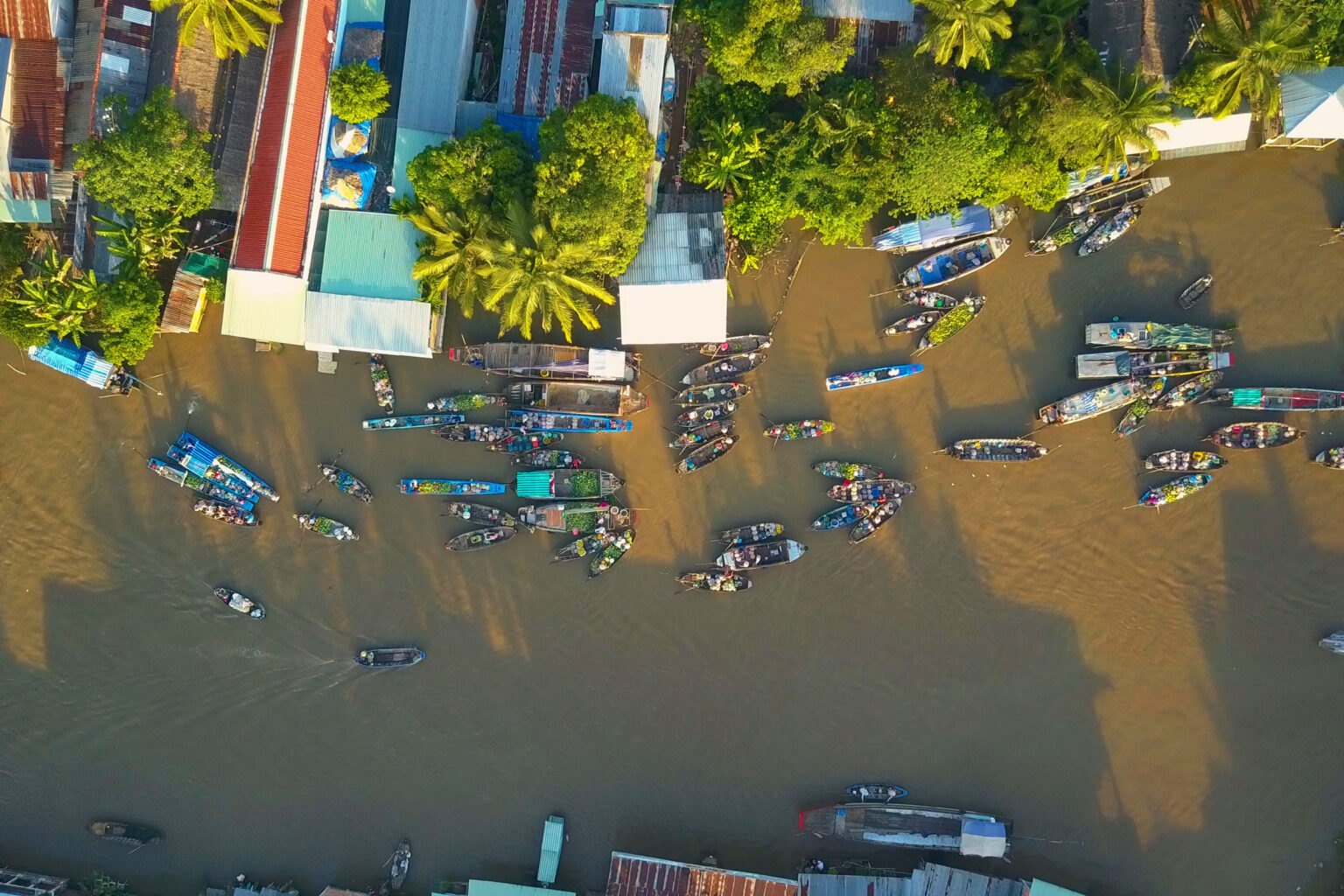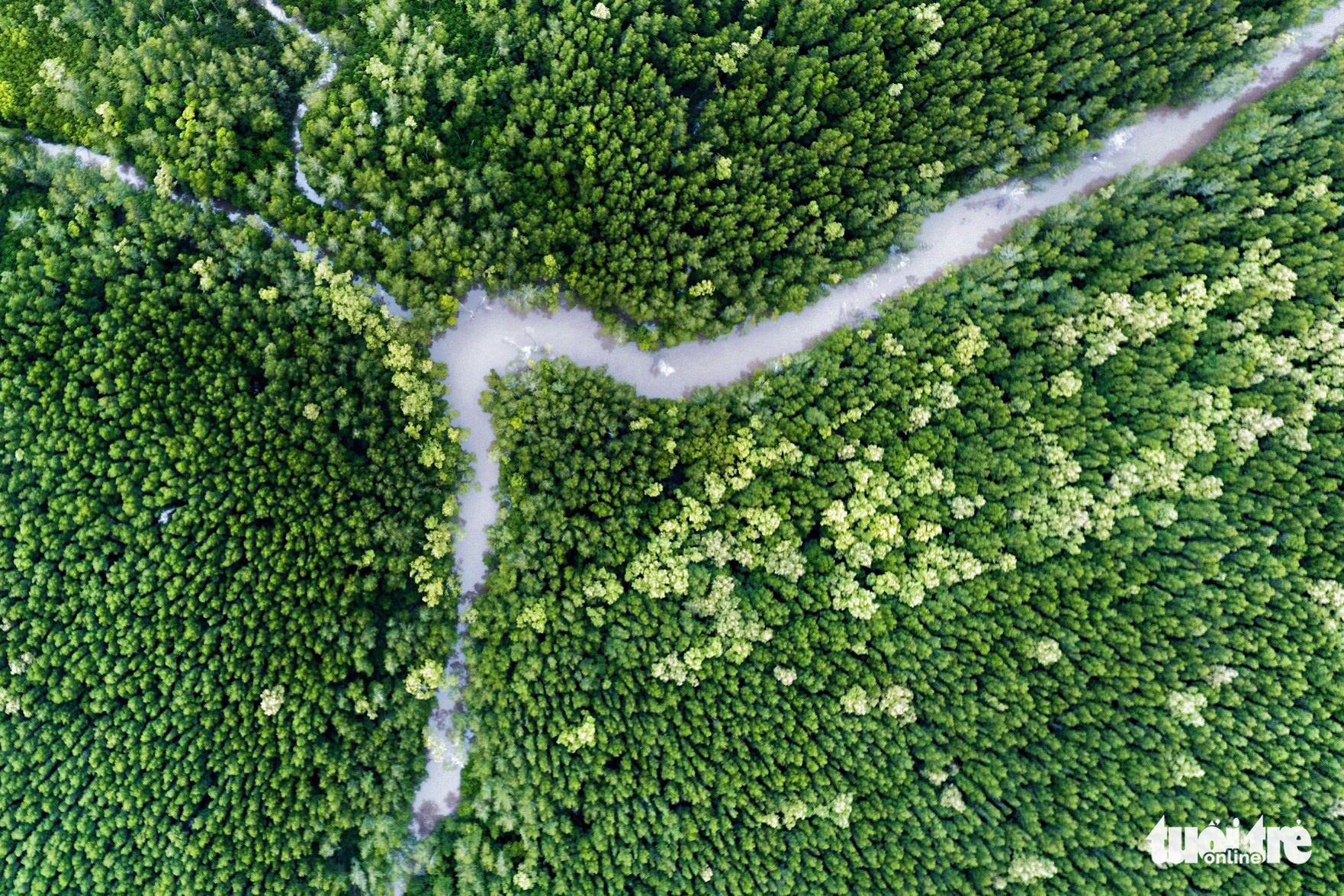The U.S. Agency for International Development (USAID) has selected nonprofit organization Winrock International to implement a US$48 million project to help reduce vulnerabilities to economic shifts and natural disasters driven by climate change in the Mekong Delta of southern Vietnam.
USAID stated in an announcement on Wednesday that the five-year project, from 2023 to 2028, will achieve this by enhancing natural systems, diversifying livelihoods, and promoting low methane emission agriculture, thereby improving the climate resilience of vulnerable communities.
The Mekong Delta, a region of 40,000 square kilometers and approximately 18 million people, is among the world’s regions most vulnerable to the impacts of climate change, according to the agency.
While the region is an agricultural powerhouse that produces roughly half of Vietnam’s total rice harvest and nearly three quarters of its fruit, aquaculture, and fisheries products, it faces a myriad of threats due to climate change and exploitation of natural resources.
Impacts such as saltwater intrusion from rising sea levels and land subsidence are already happening in the area.
Besides, as Vietnam has joined the Global Methane Pledge to reduce methane emissions by 30 percent by 2030 compared to the 2020 level, rice production, which accounts for over 40 percent of the country’s total methane emissions, plays a crucial role in meeting this target.
|
|
| A bird’s-eye photo shows the Mui Ca Mau World Biosphere Reserve in Ca Mau Province, southern Vietnam. Photo: Huu Khoa / Tuoi Tre |
With a budget of $48 million, the project aims to work collaboratively with local communities, private sector companies, and government authorities to provide alternative livelihoods and improve farming practices in the Mekong Delta.
In addition, it will enhance the conservation of mangroves, terrestrial forests, wetlands, and melaleuca forests, all of which are characteristic components of the local natural ecosystems.
The initiative will also replant degraded forests and restore natural wetland ecosystems in the region to increase the provision of ecosystem goods and services.
Through the project, USAID plans to support converting rice-producing lands to horticulture and aquaculture, transitioning to fertilizers that emit less greenhouse gas emissions, and improving water and straw management practices in rice fields.
USAID anticipates that the project will help 1,500 vulnerable communities in the Mekong Delta to adapt to climate change impacts and support 400,000 people to use climate information for timely decision making or to implement risk-reducing actions.
It is also expected to improve conservation, restoration, and management of 250,000 hectares of natural ecosystems.
More than 62,000 hectares of land will be transitioned to low-emission, sustainable crop production.
The project targets the provinces of Dong Thap, Kien Giang, Ca Mau, Soc Trang, and Tra Vinh.
Like us on Facebook or follow us on Twitter to get the latest news about Vietnam!




















































